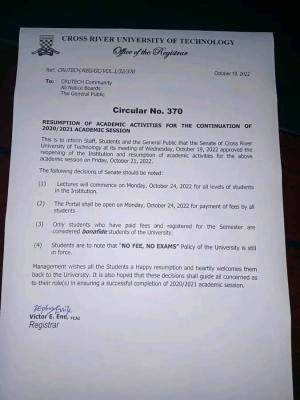
Gaining admission into Arizona State University (ASU), a renowned institution with a high acceptance rate, requires a strategic approach.
This guide provides insights into the essential steps and best practices to enhance your chances of being admitted to ASU. From meeting academic requirements to understanding the application process, we cover all the crucial aspects to prepare you for your journey to ASU.
1. Understanding ASU Admission Requirements
ASU has specific criteria for first-year applicants:
Academic Thresholds for ASU Admission:
To meet Arizona State University’s academic thresholds, strive to be in the top 25% of your high school class. This demonstrates a strong academic standing relative to your peers. Alternatively, maintaining a minimum GPA of 3.00 in competency courses is crucial.
These courses typically include core subjects like English, Math, Science, and Social Studies. Achieving excellence in these areas showcases your readiness for university-level academics. Focus on consistent performance and seek help in subjects where needed to maintain or improve your GPA.
Standardized Tests for ASU Admission:
ASU requires an ACT score of 22 (24 for nonresidents) or an SAT score of 1120 (1180 for nonresidents) for admission consideration. While ASU does not mandate the writing portion of these tests, achieving these scores can significantly bolster your application, especially for course placement purposes.
To prepare, engage in thorough study plans, utilize practice tests, and consider joining prep courses or working with tutors. Remember, these scores are part of a holistic evaluation, so aim for the best possible outcome to complement your overall academic profile.
2. The Test-Optional Policy
When applying to ASU, carefully assess whether including your SAT or ACT scores will enhance your application.
If your scores are strong and well above ASU’s minimum requirements, submitting them can be advantageous, especially for merit scholarship consideration. Strong test scores can showcase your academic prowess and readiness for university-level work.
However, if your scores aren’t as high as you’d like, remember that ASU has a test-optional policy. In this case, focus on strengthening other application elements such as your GPA, essays, and extracurricular activities to make a compelling case for your admission.
3. Comprehensive Application Submission
Online Application for ASU Admission:
To apply to Arizona State University, complete the undergraduate admission application through their online portal. This streamlined process allows you to provide your academic and personal details efficiently. Remember, there’s a nonrefundable application fee of $70 for ASU Online programs, which is an integral part of the submission.
Ensure that all information is accurate and complete before submission. Double-check your application for any errors or omissions, as this is your primary opportunity to make a strong first impression.
FAFSA Filing for Financial Aid at ASU:
Submitting the Free Application for Federal Student Aid (FAFSA) is crucial for exploring financial aid options at ASU. When filling out the FAFSA, use ASU’s Federal School Code, 001081, to ensure your information is sent correctly to the university.
Completing the FAFSA can provide access to federal grants, loans, and work-study opportunities, making higher education more affordable. It’s advisable to submit the FAFSA as early as possible, as some aid is awarded on a first-come, first-served basis.
4. Transcripts and Scores
Sending Official Transcripts to ASU:
For your application to Arizona State University, it’s essential to send your official high school transcripts directly to ASU’s admissions office. These transcripts must clearly indicate your cumulative GPA and the date of your graduation.
Ensure that they are sent by the records office of your educational institution to maintain their official status. Accurate and complete transcripts are vital, as they provide ASU with a comprehensive overview of your academic history and achievements, which are crucial components of the admissions decision-making process.
Submitting ACT/SAT Scores to ASU:
If you decide to enhance your application to ASU with ACT or SAT scores, you need to request that the testing agencies send them directly to the university. This step ensures that ASU receives verified and official score reports. While submitting these scores is optional, doing so can be advantageous if they reflect your academic strengths.
Remember, strong test scores can be beneficial for both course placement and merit-based scholarship evaluations at ASU, so consider this option if your scores are a strong representation of your academic abilities.
Read Here: why is miami university acceptance rate so high
5. Earned Admission Pathway
Alternative Admission at ASU offers a unique opportunity for those who don’t meet standard requirements but still aspire to pursue higher education. This pathway is specifically designed for students who want to prove their academic potential through a different route.
Through ASU’s Earned Admission for online programs, candidates can enroll in online courses and focus on achieving excellence. By maintaining a GPA of 2.75 or higher in these courses, students demonstrate their commitment and capability for academic success.
This approach not only provides a second chance for learners but also emphasizes the value of perseverance and dedication in education. It’s an innovative way to ensure that more students have access to quality higher education, regardless of their past academic performance.
6. Building a Strong Application
Academic Rigor:
Demonstrating readiness for college academics is crucial, and taking challenging courses in high school is a key way to do this.
Engaging in advanced placement or honors classes not only shows your academic strength but also your willingness to push beyond comfort zones, preparing you for the demanding nature of college studies.
Extracurricular Activities:
Participation in extracurricular activities is vital for showcasing leadership and commitment. Engaging in clubs, sports, or community service that align with ASU’s values demonstrates your well-roundedness and ability to contribute positively to the university community.
These activities reflect personal interests and dedication beyond academic achievements.
Personal Essays:
Personal essays offer a unique opportunity to express individuality and align your values with ASU’s mission. A compelling essay should narrate your personal experiences, aspirations, and perspectives.
It’s your chance to make a memorable impression, showing how your background and experiences will enrich the diverse ASU community.
Letters of Recommendation:
Choosing the right recommenders is essential for highlighting your academic and personal strengths. Select individuals who know you well and can provide detailed insights into your character and abilities.
Their endorsements should reinforce your readiness for college, reflecting your potential for success at ASU.
7. Admissions Rate and Selectivity
Understanding Selectivity:
ASU’s acceptance rate of 89.8% indicates a moderately selective admissions process. This relatively high rate reflects the university’s commitment to diversity and inclusivity, valuing a wide range of qualifications beyond academic performance alone.
It suggests that ASU is interested in the holistic qualities of its applicants, considering various aspects of their profiles to create a dynamic and varied student body.
Application Strategy:
To enhance your admission prospects at ASU, it’s crucial to tailor your application effectively. This involves highlighting how your qualifications align with and exceed ASU’s criteria.
Emphasize your unique strengths and experiences, showcasing how they make you a valuable addition to their community. A well-crafted application should reflect your potential to contribute meaningfully to the university both academically and socially.
Read Here: why is pomona college acceptance rate so low
8. Preparing for Potential Interviews
Although interviews are not typically required in ASU’s admission process, being prepared for them, especially for specific majors or scholarships, is advantageous. Interviews can be an opportunity to make a personal impression and demonstrate qualities that aren’t as easily conveyed on paper.
Preparing for potential interviews involves understanding ASU’s values and how your experiences and goals align with them. Being interview-ready means being able to articulate your strengths, experiences, and aspirations confidently and clearly, showcasing your suitability for the program or scholarship you’re applying for.
9. Utilising Additional Resources
Admissions Consulting:
Utilizing services like PrepScholar Admissions can be immensely beneficial in navigating ASU’s admissions process. These consulting services offer personalized guidance and strategies, helping you to tailor your application to meet ASU’s unique criteria.
They provide insights into the admissions landscape, helping to highlight your strengths and address any weaknesses. Such personalized guidance ensures that your application not only meets but exceeds the expectations of the admissions committee, significantly boosting your chances of acceptance.
Campus Visits and Virtual Tours:
Engaging with ASU’s campus culture through visits or virtual tours can add significant depth to your application. These experiences allow you to gain a firsthand understanding of the university’s environment, academic offerings, and student life.
By mentioning specific aspects of the campus or programs that appeal to you, your application becomes more personalized and shows a genuine interest in ASU. Whether in-person or virtually, these visits can provide valuable insights and talking points, making your application more authentic and well-informed.
10. Final Checklist and Submission
Review and Revise:
It is critical to thoroughly review and revise your ASU application to ensure accuracy and completeness. This process involves meticulously checking each section for correctness and clarity. It’s not just about avoiding errors; it’s also about refining your application to best represent your qualifications and fit for ASU.
Ensure that every part of your application—from academic records to personal essays—cohesively demonstrates your strengths and readiness for university life. This step underscores your attention to detail and commitment to presenting your best self to the admissions committee.
Adherence to Deadlines:
Submitting your application and all supporting documents well before the deadline is essential. Adhering to deadlines reflects your organizational skills and seriousness about your application. It also provides a buffer against unforeseen circumstances that could delay submission, like technical issues or last-minute revisions.
Early submission not only avoids the stress of last-minute hiccups but also demonstrates your proactive approach and good time management skills. It’s an important aspect of showing your readiness for the structured and deadline-driven environment of university studies.
Read Here: is full sail university worth it
Frequently Asked Questions
Is it hard to get into Arizona State University?
Getting into Arizona State University (ASU) is considered moderately challenging. While ASU has a relatively high acceptance rate (around 89.8%), this doesn’t necessarily mean it’s easy to get in.
The university still considers a range of factors including academic performance, extracurricular activities, essays, and letters of recommendation. Prospective students should still aim to present a strong application to improve their chances of acceptance.
What GPA do you need to get into ASU?
ASU does not have a strict minimum GPA requirement for admission, but the average GPA of admitted students is typically around 3.0 to 3.5. However, this doesn’t mean that a lower GPA automatically disqualifies an applicant. ASU considers applications holistically, so strengths in other areas like extracurriculars or essays can offset a lower GPA.
Does Arizona State University accept anyone?
While ASU is known for its inclusivity and high acceptance rate, it does not accept everyone. Admissions decisions are based on a combination of factors, including academic performance, test scores (if submitted), extracurricular activities, personal essays, and letters of recommendation.
ASU seeks students who demonstrate potential for success in their academic and extracurricular pursuits.
Does ASU accept a 2.5 GPA?
ASU might accept students with a 2.5 GPA, but it’s important to note that admissions are competitive and holistic.
A GPA of 2.5 is below the average for admitted students, so applicants with this GPA should ensure other aspects of their application are strong, such as their personal statement, extracurricular activities, and letters of recommendation.
Additionally, ASU’s Earned Admission Track offers an alternative route for students who may not meet the typical admission criteria.
Conclusion
Gaining admission to Arizona State University is an attainable goal with the right preparation and approach. By understanding ASU’s requirements, showcasing your strengths through various application components, and adhering to the application process, you can increase your chances of joining the Sun Devil community.
Remember, a well-rounded application is key to demonstrating your readiness for the academic and social environment at ASU.




